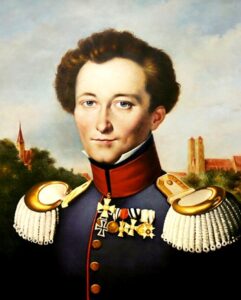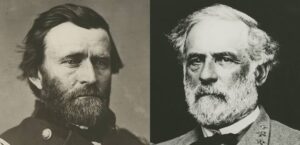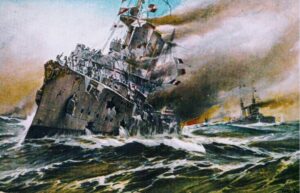You may be wondering why the pundits in the media always seem to get it wrong predicting winners and losers in wars, or how long these wars will last. It’s because they only look at the rational factors in war, like how many aircraft each side has, the strength of their armies, levels of technology and so forth that can be measured. These “armchair admirals” and “barstool brigadiers” wouldn’t understand Clausewitz if the old boy came back from the dead and personally instructed them. Most probably never read Sun-Tzu, and Mao Zedong, and probably think that Ardant du Picq is a men’s cologne. But you can get a National War College education right here and right now.
“Dead Carl” Clausewitz, his nickname at the US Army’s School of Advanced Military Studies (SAMS), knew that wars are influenced by rational factors, and also by irrational and even arational factors. Irrational factors are emotional. Had Santa Anna not killed all the defenders at The Alamo, maybe the rest of Texas wouldn’t have gotten so mad that they unified and kicked his butt. After the Japanese did their sneak attack at Pearl Harbor, and compounded that later at the Bataan Death March, the U.S. became so driven by emotion that we ended up nuking them. So irrational emotions have to factor in, but what weight do you give them? Can you even measure them?
Arational factors can be all kinds of chance events, like aspects of the weather, or the sudden natural death of an enemy leader. You can predict general weather trends, but you never get the details completely correct. Typhoon Cobra in December 1944 in the Pacific killed 790 US sailors, sank three destroyers, and heavily damaged nine other US warships. In 1762, Frederick the Great of Prussia was about to get whipped by the Austrians and Russians, when Russian Empress Elizabeth suddenly died and her successor not only ended the war with Prussia, but also offered Frederick the use of a Russian corps for the remainder of his war against Austria! Predict that!
Then there is the nature versus the character and conduct of war. The nature – that wars are bloody and governed by rational, irrational and arational factors – is constant. But weapons, tactics and strategies are always changing. Those that anticipate these changes have a better chance of winning, hence “Losers Fight the Last War Late; Winners Fight the Next War Early.” Bobby Lee fought the Civil War the way Napoleon would have fifty years before – concentrating on out-maneuvering the Union Army and being tactically superior in every battle.
That worked — until Abe Lincoln brought Sam Grant and his sidekick Uncle Billy Sherman on board to “fight the next war early”; ironclads replaced sailing warships, railroads allowed for rapid troop movement, arms-producing factories in the North became more important than horse-raising farms in the South, and the new battlefield lethality meant that through attrition Grant might indeed lose more men than Lee, but he and “War is Hell” Sherman would not only bleed the South dry in the process, but also conduct a scorched-earth campaign through Georgia destroying the South’s ability to produce weapons.
Finally, pundits often fail to understand the Law of Unintended Consequences – those results of an action that aren’t anticipated. Sometimes unintended consequences can be avoided by more rigorous analysis; others are truly random or unpredictable.
Take the British Royal Navy before World War I when battleships and battlecruisers were king. Battleship admirals insisted that gun crews on these ships concentrate on shooting faster than their potential rivals, the Germans. Fast gun crews were rewarded; slow-pokes were punished.
So wise old Chief Petty Officers, many of whom had been in the Royal Navy over ten years, decided to cut a corner here and there to be faster. Shells and highly-combustible cordite propellent were usually stored deep in a ship’s armored magazines and brought up to the turret on hoists through fireproof doors closed until the moment of transfer. These CPOs figured they could shave valuable seconds off their times by keeping those doors open. And then, another other old seadog thought if you stored the cordite inside the turret, you wouldn’t waste time hauling it up. So they did.
Then came the 1916 Battle of Jutland, and despite having twice as many ships, the British lost a whole bunch of them, when – after they had been hit in the turrets by enemy shells – the fires spread down to the magazine causing catastrophic explosions, in some cases killing everyone aboard. I wonder why that happened?
So the next time some retired old general, who commonly relied on smart majors and lieutenant colonels to conceive his battle plans (General Norm Schwarzkopf had four recent graduates of SAMS assigned to devise the winning battle plan — none higher than a colonel), or a Harvard geek, tells you what’s going to happen in a war, bet the “over” on the anticipated duration, and that it won’t likely unfold the way they prognosticate.
But SAMS graduates? Ever since Desert Storm they are called “Jedi Knights.”


